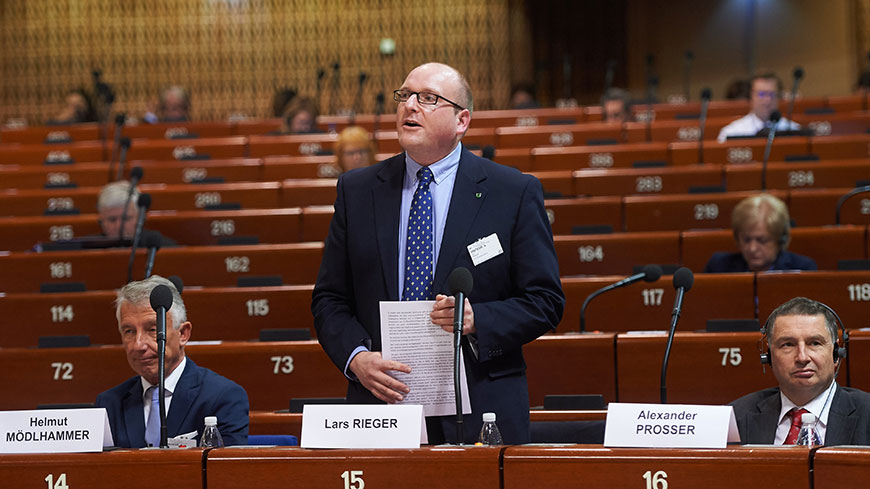On 30 October 2019, the Congress’s Chamber of Local Authorities held a debate on the working conditions of mayors and municipal councillors. The disaffection for office of local elected representatives is a cause for concern for Congress members as it poses a real threat to the health of local democracy. The debate revealed that most member states were faced with very similar situations. A number of proposals for action were put forward.
In the run-up to the many local and regional elections scheduled for 2020 in Europe, local democracy seems threatened by the shortage of candidates for the positions of mayors and municipal councillors. The debate, initiated by the Congress, sought to examine the extent of this problem in member states and to carry out an analysis in order to draw up sustainable solutions for making these positions more attractive, particularly for young people.
The concept paper, proposed by the Chamber of Local Authorities, together with the speeches by Helmut Mödlhammer, former President of the Association of Austrian Municipalities and Lars Rieger, Mayor of Scheich in Germany, highlight the fact that municipalities in Europe have found themselves increasingly given responsibilities transferred from central government.
However, the increase in the responsibilities and workload of mayors and local elected representatives has very often gone hand in hand with a reduction in municipal budgets as a result of austerity policies. As a consequence, mayors have been obliged to manage complex issues in such crucial sectors as security, health, kindergartens, education, housing, postal services, the migration crisis, etc., without having the necessary financial room for manoeuvre.
“We have become responsible for all the problems that citizens face from cradle to grave,” said Helmut Mödlhammer, a mayor in Austria and also a journalist and author of the book My Life for the Community (Mein Lebensweg für die Gemeinden), 2013.
As they are in direct contact with the population, mayors also very often become victims of the frustration and anger of citizens towards the political class in general. Speakers in the debate drew attention to the fact that mayors are caught in the crossfire and are increasingly taken to court for the simple reason that they manage overly complex cases for which they do not have the appropriate legal and administrative training: “Every mayor would need a full-time lawyer!” said Rosaleen O’Grady (Ireland).
If we add to this the proliferation of criticisms and threats to which local elected officials are subjected on a daily basis, particularly on social media, not to mention the many cases of physical aggression, it is easy to understand why taking up these duties poses a serious risk to the careers, health and family life of elected representatives, which is why political parties are finding it hard to recruit candidates to the position of mayors, especially among young people and women.
In his address, Lars Rieger, mayor of Scheich, said that there were no candidates for mayor in 2223 German municipalities. He felt that one of the main reasons for this was the need for most mayors of small German municipalities to continue to keep their job in the private sector. As a result, they sacrifice both their professional position and all their free time, including evenings, without being properly compensated for the service they provide: “When we become mayors we often have to contend with a deterioration in our careers, our financial situations, and sometimes our family relationships,” he explained. The low level of remuneration was frequently cited as an explanation in most of the contributions to the debate.
The members of the Congress expressed a collective willingness to engage in co-ordinated action at European level, welcoming in particular the proposal by Piero Fassino (Italy) to organise a conference in Strasbourg of European associations of local authorities to draw up a joint action plan vis-à-vis governments.
Good practices such as the UK website “Become a Councillor”, the setting up of a local elected representatives’ interest group in Scotland, the example of countries such as Luxembourg where the status of local elected representatives has numerous benefits, etc., and the involvement of young delegates in the debate have helped to put forward a number of proposals to give potential candidates a renewed opinion of the positions of mayor and municipal councillor.
- Concept paper
- Helmut Mödlhammer's speech (only available in German)
- Lars Rieger's speech (only available in German)
- Video of the debate: EN - FR - Original
** 37th Session of the Congress **
File 37th Session - Agenda - Videos and photos – Mediabox interviews




